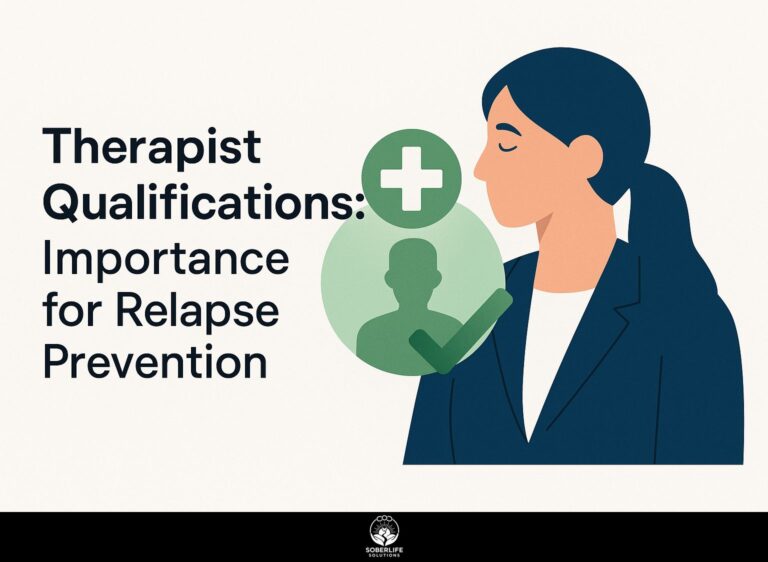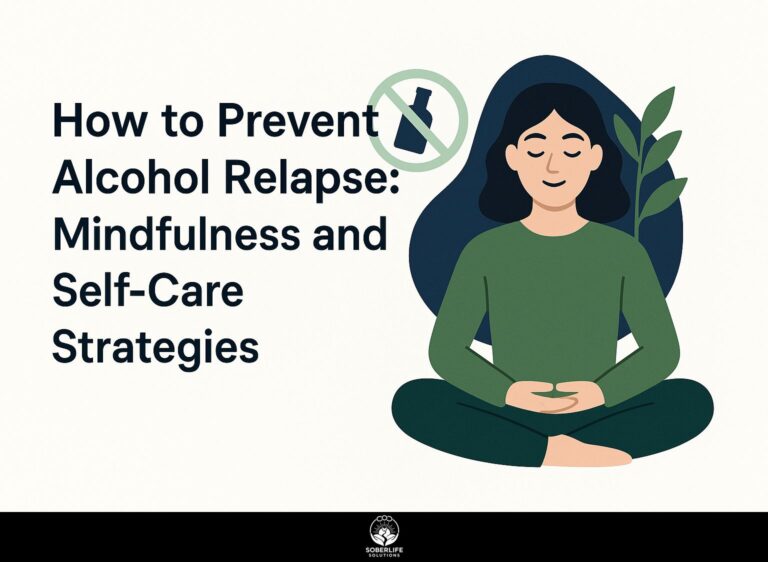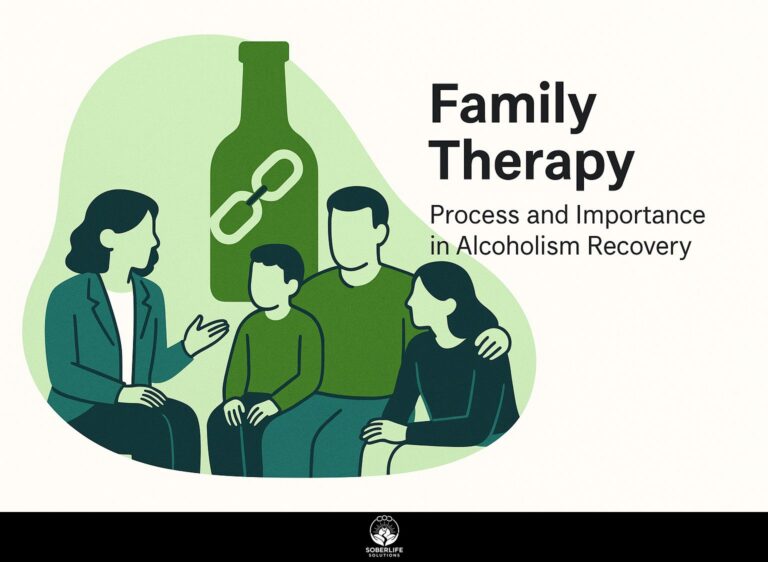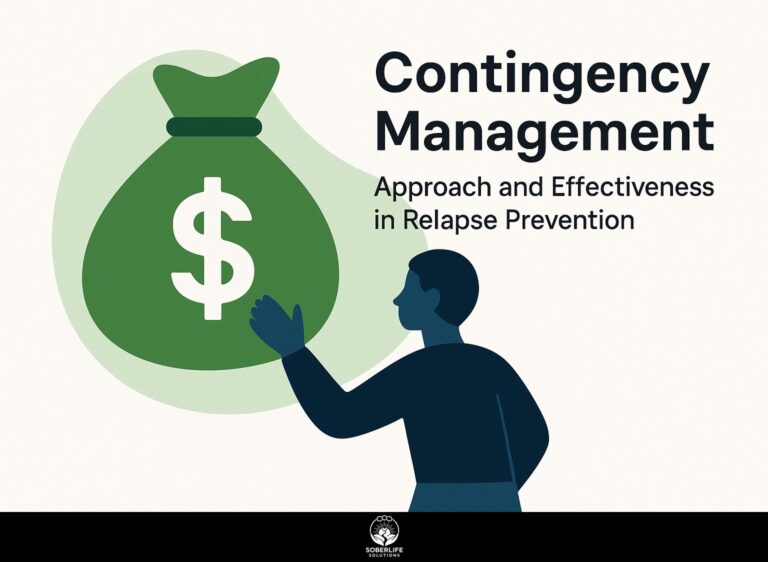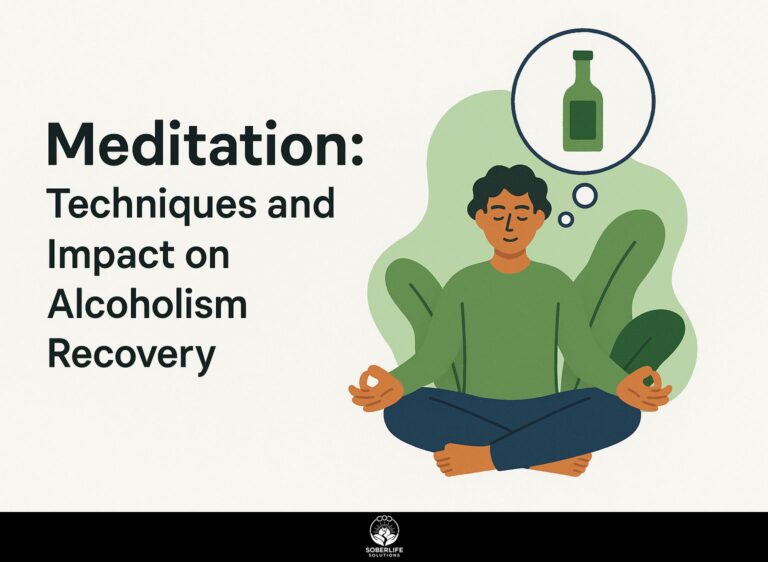Marital and Family Counseling: Impact on Recovery
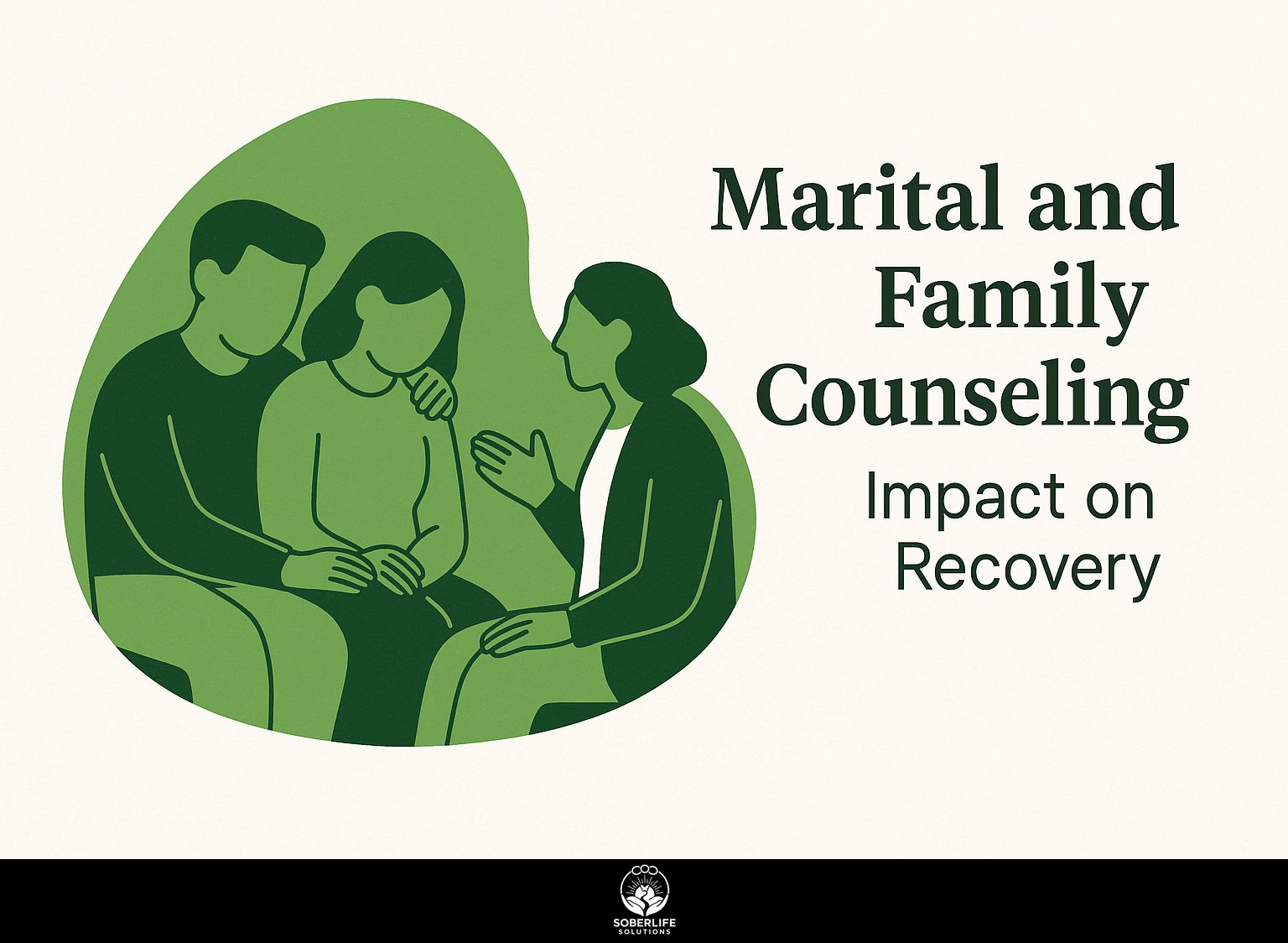
Substance abuse often impacts the person involved and their family and relationships. Marital therapy and family therapy, especially behavioral couples therapy, are important for recovery by helping with key family discussions. This article looks at how these counseling methods help with healing and make relationships stronger by improving how people talk to each other and solve disagreements. Learn how marital and family counseling can help improve recovery and build stronger relationships.
Key Takeaways:
The Role of Counseling in Recovery
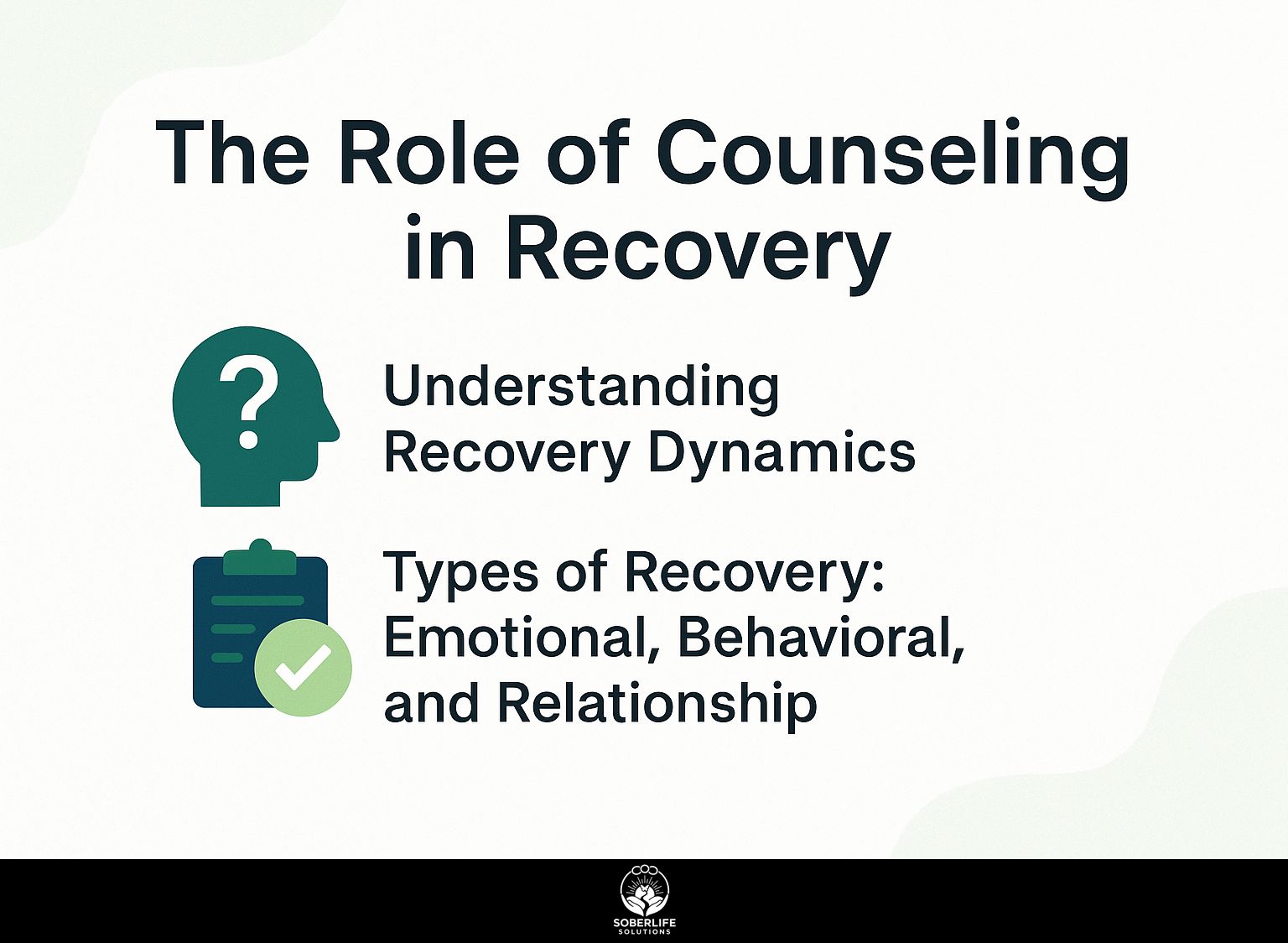
Counseling is important for recovery, helping family members take part in treatment and support each other. For those looking to deepen their understanding of the tools available, exploring the benefits of alcohol counseling can offer valuable insights into achieving long-term sobriety.
Understanding Recovery Dynamics
Recovery dynamics explain how family bonds influence the emotional and behavioral recovery of individuals facing substance use issues.
Family actions can greatly affect recovery, either worsening emotional pain or helping build strength. Positive family interactions can increase motivation, while family conflicts might lead to higher anxiety levels.
A useful method for dealing with these issues is Multidimensional Family Therapy (MDFT), which involves family participation to build a helpful setting for the person. This approach involves methods such as family meetings, improving communication abilities, and teaching about substance use, aiming to change family habits that lead to relapses and emotional difficulties.
Types of Recovery: Emotional, Behavioral, and Relationship
Knowing how people feel, act, and connect is important for creating good ways to help families in counseling.
Emotional recovery focuses on developing coping strategies for psychological distress. Techniques like cognitive behavioral therapy (CBT) can help individuals reframe negative thoughts. For those looking to explore these techniques further, Verywell Mind provides a comprehensive overview of CBT that is highly informative.
Behavioral recovery emphasizes adopting a substance-free lifestyle through support groups such as Alcoholics Anonymous or implementing healthy habits like regular exercise. Exploring ways to modify daily habits can significantly aid in recovery, as outlined in Changing Habits in Recovery: Eating and Lifestyle.
Relationship recovery focuses on improving family unity by encouraging honest conversations and activities that help family members connect, like family therapy or spending time on hobbies together.
These methods are important for increasing resilience and improving family bonds.
Benefits of Marital and Family Counseling
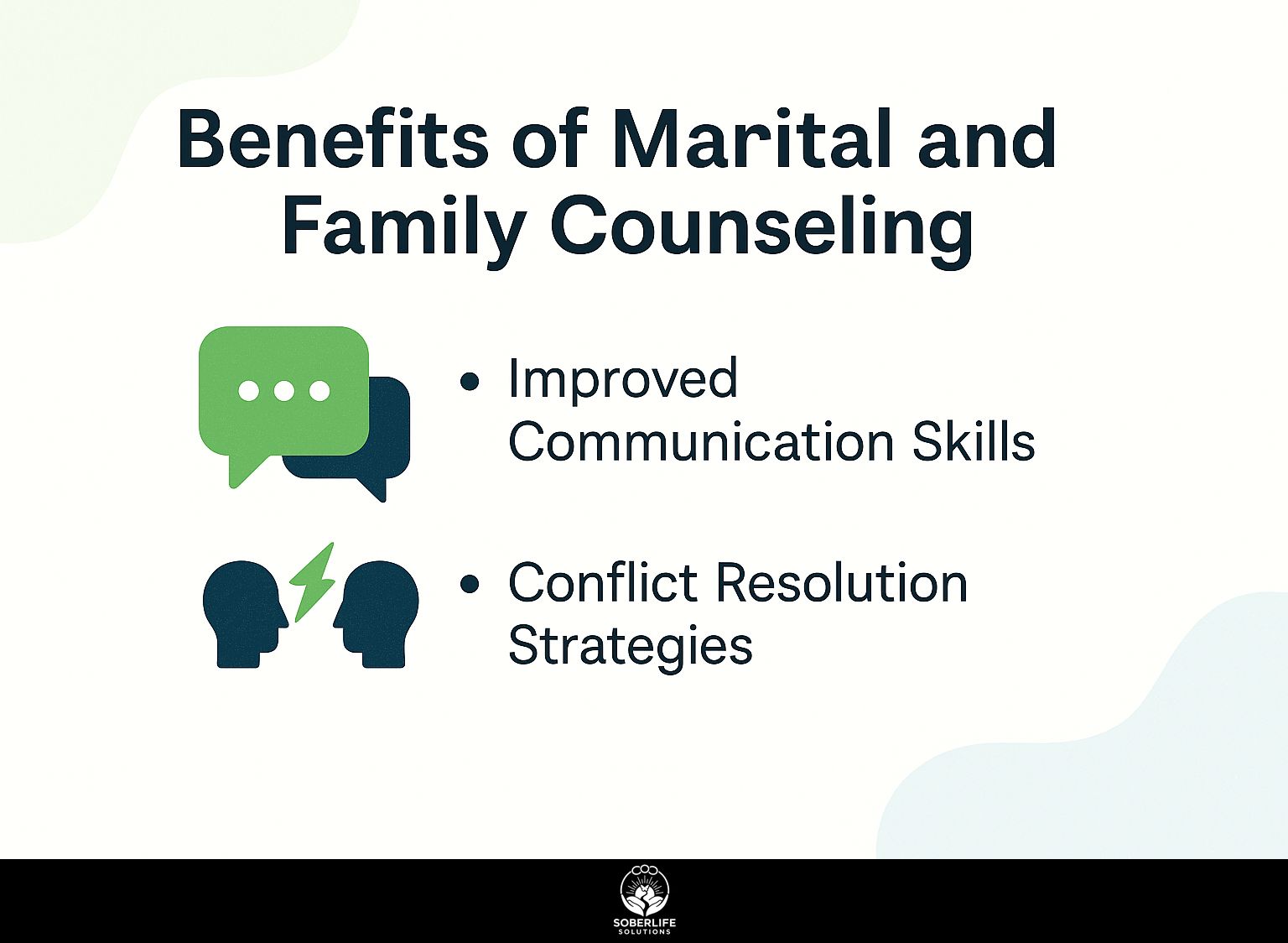
Marital and family counseling offers many benefits, especially in improving family support networks and developing good parenting methods.
Improved Communication Skills
Marital and family counseling helps people talk better, which is important for building supportive communication and healthy family relationships.
One effective approach is using Active Listening. This involves family members giving their full attention to the speaker without interrupting. They then repeat back what they heard to make sure they understood correctly.
For instance, during a disagreement, using I-statements, like “I feel overwhelmed when…” can express feelings without casting blame.
Counselors often suggest acting out scenarios, letting families try out and improve these methods in a secure setting.
Using these methods can result in better conversations, fewer disagreements, and improvements in family relationships.
Conflict Resolution Strategies
Figuring out disagreements is essential to recognizing relationship problems in families dealing with substance abuse.
Adopting mediation techniques can significantly ease tensions. For instance, setting ground rules for discussions-such as no interrupting and maintaining a respectful tone-helps create a safe environment.
In a case where a family member struggled with addiction, they used a structured family meeting model. Everyone talked about their feelings honestly and without blaming each other, which helped them get along better. Insights into these methods are also supported by ResearchGate’s guide on family mediation, which provides valuable strategies for therapists.
Regular check-ins helped maintain open communication and responsibility, which in turn reduced serious arguments and supported family healing.
Challenges in Family Dynamics
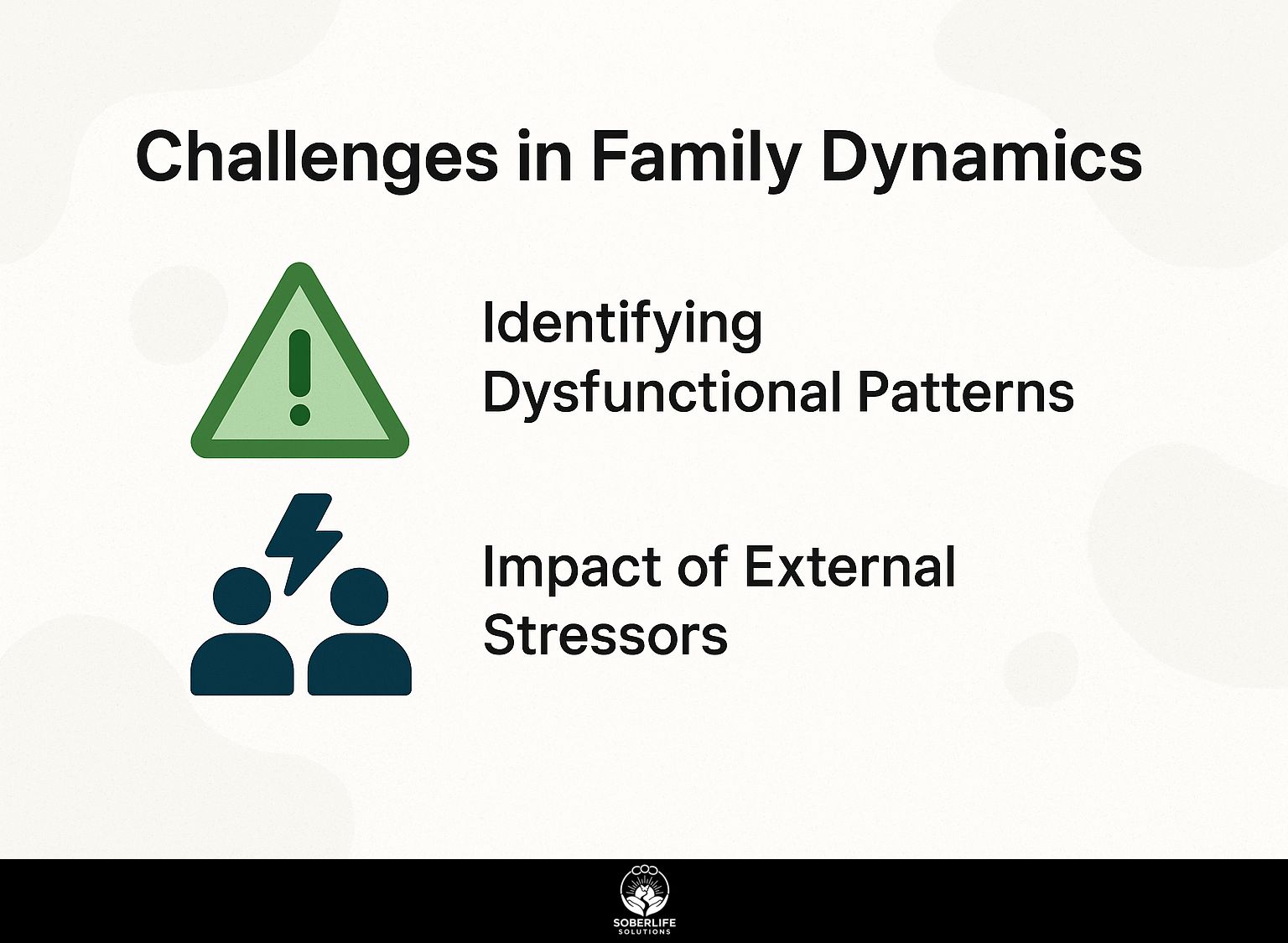
Families dealing with substance abuse encounter particular difficulties that can interfere with healthy relationships and cause mental health issues. For those navigating this challenging landscape, see also: techniques and the importance of psychologists in recovery to better support family dynamics.
Identifying Dysfunctional Patterns
Identifying harmful behaviors is important for therapy focused on bettering family relationships and mental health.
Common indicators of these patterns include avoidance of communication, where family members may refuse to engage in discussions, and chronic conflict, which surfaces as repeated arguments over unresolved issues.
Tools such as family systems therapy can effectively address these challenges by focusing on the relationships and patterns among family members rather than just individual behaviors.
Holding regular family meetings can help start open conversations and improve relationships and communication in the family.
Impact of External Stressors
External stressors such as financial crises and job loss significantly impact family functioning and the recovery process of individuals with substance use disorders.
These external pressures can create a toxic atmosphere, heightening emotional strain and causing relapse. Families can use different practical methods to address these effects. According to Psychology Today, understanding the specific impacts of financial stress on relationships can guide families in implementing effective strategies.
- Joining local support groups, like Alcoholics Anonymous or community mental health services, can offer important emotional and practical help.
- Practicing stress management techniques like mindfulness meditation or yoga promotes resilience.
- Creating a budget can reduce financial stress, lead to a more stable home life, and help with recovery efforts.
Case Studies and Success Stories
Looking at actual examples shows how marriage and family counseling can help people recover from substance abuse.
-
One notable case involved a family therapy program in Chicago, which reported a 30% reduction in relapse rates among participants within six months. This program used a combination of cognitive-behavioral therapy and family systems therapy to encourage open communication and tackle unhealthy patterns.
-
Another successful intervention took place in a rural setting, where a community-based initiative improved family communication scores by 40% after implementing bi-weekly group sessions.
These examples demonstrate how targeted therapeutic approaches can lead to measurable improvements in both recovery outcomes and family relationships.
Best Practices for Effective Counseling
Using well-known counseling methods boosts involvement and improves therapy for families recovering.
Here are some recommended methods to use:
- First, set clear goals for each session, ensuring that all family members understand the expected outcomes.
- Second, involve family strengths by recognizing and using their current coping skills to give them a sense of control.
- Third, use active listening to acknowledge emotions and promote honest communication. For instance, regularly paraphrasing or summarizing what has been said helps build trust.
Follow up on progress in each session to maintain accountability and reinforce positive changes, creating a responsive therapeutic environment. For further insights on effective counseling techniques, you can explore our detailed guide on alcohol counseling methods and their practical applications.
Frequently Asked Questions
1. How can marital and family counseling impact recovery from addiction?
Marital and family counseling can offer important help and advice for someone in recovery. By involving loved ones in the process, it can help to strengthen relationships and build a strong support system for the recovering individual.
2. How do family relationships affect recovery?
How a family interacts and communicates can greatly affect someone’s ability to overcome addiction. Negative family interactions and poor communication can lead to relapse, while encouraging and supportive family environments can help in recovery.
3. Is it necessary to involve family members in counseling for successful recovery?
Having family involved in counseling isn’t always needed for someone to recover successfully, but it can greatly improve the likelihood of staying sober. Family support can offer encouragement, responsibility, and empathy for someone in recovery.
4. What are some benefits of participating in marital and family counseling during recovery?
Some benefits of participating in counseling with loved ones include better communication, stronger relationships, more empathy, and learning healthy coping skills for both the individual in recovery and their family members.
5. What types of issues can be addressed in marital and family counseling during recovery?
Marital and family counseling can address a range of issues, including codependency, enabling behaviors, unresolved conflicts, communication difficulties, and the impact of addiction on the family unit.
6. Can marital and family counseling also benefit family members of the recovering individual?
Absolutely. Marital and family counseling offers a safe environment for family members to talk about their feelings and experiences. It helps them learn about addiction and understand how to support their loved one during recovery.

